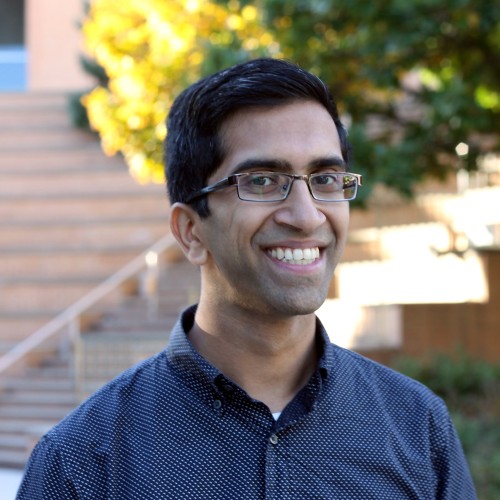AI & Fundamentals
Differentially Private Fine-tuning of Language Models - Gautam Kamath, Assistant Professor, University of Waterloo

DATE: Mon, August 29, 2022 - 11:00 am
LOCATION: UBC Vancouver Campus, ICCS X836
DETAILS
Please register for this event here.
Abstract:
We give simpler, sparser, and faster algorithms for differentially private fine-tuning of large-scale pre-trained language models, which achieve the state-of-the-art privacy versus utility tradeoffs on many standard NLP tasks. We propose a meta-framework for this problem, inspired by the recent success of highly parameter-efficient methods for fine-tuning. Our experiments show that differentially private adaptations of these approaches outperform previous private algorithms in three important dimensions: utility, privacy, and the computational and memory cost of private training. On many commonly studied datasets, the utility of private models approaches that of non-private models. For example, on the MNLI dataset we achieve an accuracy of 87.8% using RoBERTa-Large and 83.5% using RoBERTa-Base with a privacy budget of ϵ=6.7. In comparison, absent privacy constraints, RoBERTa-Large achieves an accuracy of 90.2%. Our findings are similar for natural language generation tasks. Privately fine-tuning with DART, GPT-2-Small, GPT-2-Medium, GPT-2-Large, and GPT-2-XL achieve BLEU scores of 38.5, 42.0, 43.1, and 43.8 respectively (privacy budget of ϵ=6.8,δ= 1e-5) whereas the non-private baseline is 48.1. All our experiments suggest that larger models are better suited for private fine-tuning: while they are well known to achieve superior accuracy non-privately, we find that they also better maintain their accuracy when privacy is introduced. No knowledge of differential privacy will be assumed. Based on joint work with Da Yu, Saurabh Naik, Arturs Backurs, Sivakanth Gopi, Huseyin A. Inan, Janardhan Kulkarni, Yin Tat Lee, Andre Manoel, Lukas Wutschitz, Sergey Yekhanin, and Huishuai Zhang. Paper appeared in ICLR 2022, and available on arXiv (https://arxiv.org/abs/2110.06500).
Bio:
Gautam Kamath is an Assistant Professor at the David R. Cheriton School of Computer Science at the University of Waterloo. He has a B.S. in Computer Science and Electrical and Computer Engineering from Cornell University, and an M.S. and Ph.D. in Computer Science from the Massachusetts Institute of Technology, where he was advised by Constantinos Daskalakis. His research interests lie in methods for statistics and machine learning, with a focus on challenges which arise in modern data analysis, including data privacy and robustness. He was a Microsoft Research Fellow, as a part of the SimonsBerkeley Research Fellowship Program at the Simons Institute for the Theory of Computing. He is recipient of an NSERC Discovery Accelerator Supplement, and was awarded the Best Student Presentation Award at the ACM Symposium on Theory of Computing in 2012.
Any questions may be directed to admin@caida.ubc.ca
Please register for this event here.